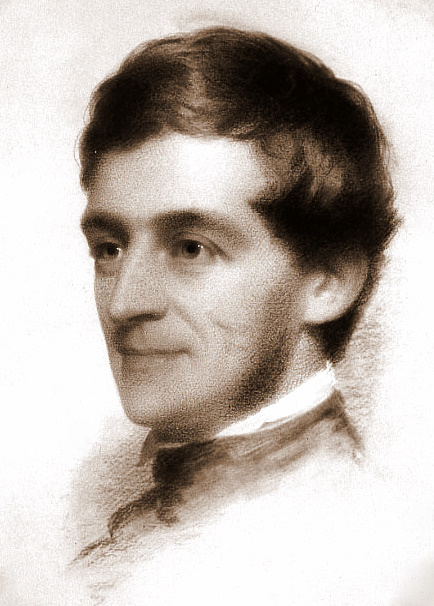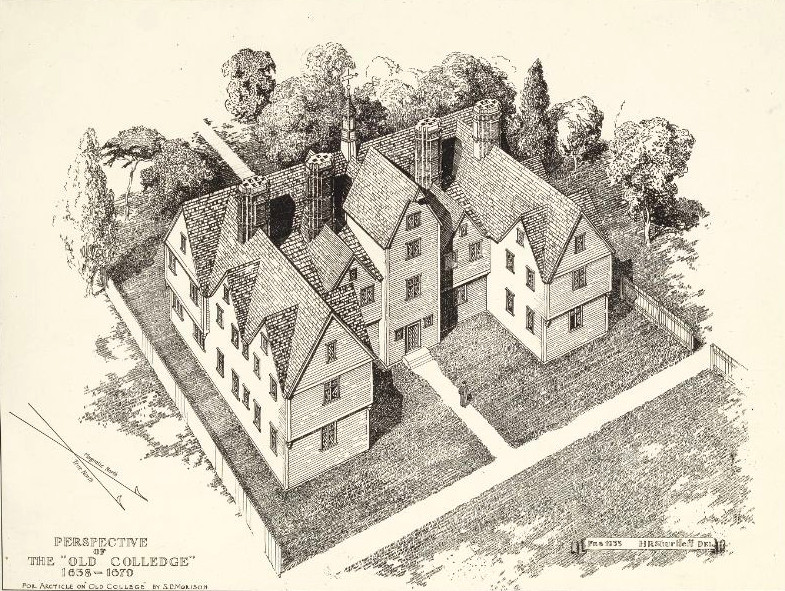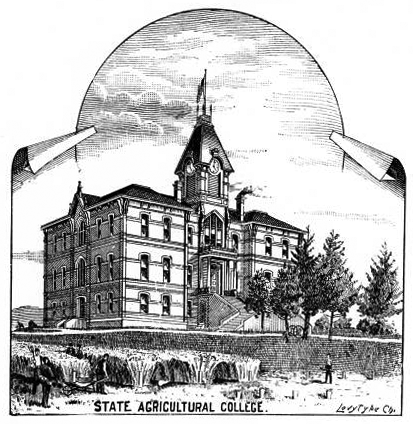|
Nature (book)
''Nature'' is a book-length essay written by Ralph Waldo Emerson, published by James Munroe and Company in 1836. In the essay Emerson put forth the foundation of transcendentalism, a belief system that espouses a non-traditional appreciation of nature. Transcendentalism suggests that the divine, or God, suffuses nature, and suggests that reality can be understood by studying nature. Emerson's visit to the Muséum National d'Histoire Naturelle in Paris inspired a set of lectures he later delivered in Boston which were then published. Within the essay, Emerson divides nature into four usages: Commodity, Beauty, Language and Discipline. These distinctions define the ways by which humans use nature for their basic needs, their desire for delight, their communication with one another and their understanding of the world. Emerson followed the success of ''Nature'' with a speech, "The American Scholar", which together with his previous lectures laid the foundation for transcendentalism ... [...More Info...] [...Related Items...] OR: [Wikipedia] [Google] [Baidu] |
Emerson By Johnson 1846-crop
Emerson may refer to: People * Emerson (surname), a surname (and list of people with that name) * Emerson (given name), a given name (and list of people with that name) Places Australia *Emerson Crossing, a place in Adelaide Canada * Emerson, Manitoba **Pembina–Emerson Border Crossing ** Emerson (electoral district), a former electoral division in Manitoba * Emerson, Weldford Parish, New Brunswick United Kingdom * Emerson's Green or Emersons Green, South Gloucestershire, England United States * Emerson (Gary), a neighborhood in north-central Gary, Indiana * Emerson, Arkansas * Emerson, Georgia * Emerson, Iowa * Emerson, Nebraska * Emerson, New Jersey * Emerson, Ohio * Emerson, West Virginia * Emerson Hill, Staten Island, a neighborhood of New York City * Emerson Township, Michigan * Emerson Township, Dixon County, Nebraska * Emerson Township, Harlan County, Nebraska Institutions * Emerson College, Boston, Massachusetts * Emerson Hospital, Concord, Massachusetts * Emerson ... [...More Info...] [...Related Items...] OR: [Wikipedia] [Google] [Baidu] |
Ralph Waldo Emerson
Ralph Waldo Emerson (May 25, 1803April 27, 1882), who went by his middle name Waldo, was an American essayist, lecturer, philosopher, abolitionist, and poet who led the transcendentalist movement of the mid-19th century. He was seen as a champion of individualism and a prescient critic of the countervailing pressures of society, and his ideology was disseminated through dozens of published essays and more than 1,500 public lectures across the United States. Emerson gradually moved away from the religious and social beliefs of his contemporaries, formulating and expressing the philosophy of transcendentalism in his 1836 essay "Nature". Following this work, he gave a speech entitled "The American Scholar" in 1837, which Oliver Wendell Holmes Sr. considered to be America's "intellectual Declaration of Independence."Richardson, p. 263. Emerson wrote most of his important essays as lectures first and then revised them for print. His first two collections of essays, '' Essays: Firs ... [...More Info...] [...Related Items...] OR: [Wikipedia] [Google] [Baidu] |
Transcendentalism
Transcendentalism is a philosophical movement that developed in the late 1820s and 1830s in New England. "Transcendentalism is an American literary, political, and philosophical movement of the early nineteenth century, centered around Ralph Waldo Emerson." A core belief is in the inherent goodness of people and nature, and while society and its institutions have corrupted the purity of the individual, people are at their best when truly "self-reliant" and independent. Transcendentalists saw divine experience inherent in the everyday, rather than believing in a distant heaven. Transcendentalists saw physical and spiritual phenomena as part of dynamic processes rather than discrete entities. Transcendentalism is one of the first philosophical currents that emerged in the United States;Coviello, Peter. "Transcendentalism" ''The Oxford Encyclopedia of American Literature''. Oxford University Press, 2004. ''Oxford Reference Online''. Web. 23 Oct. 2011 it is therefore a key early point ... [...More Info...] [...Related Items...] OR: [Wikipedia] [Google] [Baidu] |
Muséum National D'Histoire Naturelle
The French National Museum of Natural History, known in French as the ' (abbreviation MNHN), is the national natural history museum of France and a ' of higher education part of Sorbonne Universities. The main museum, with four galleries, is located in Paris, France, within the Jardin des Plantes on the left bank of the River Seine. It was formally founded in 1793 during the French Revolution, but was begun even earlier in 1635 as the royal garden of medicinal plants. The museum now has 14 sites throughout France. History 17th–18th century File:Jardin du roi 1636.png, The Royal Garden of Medicinal Plants in 1636 File:Buffon statue dsc00979.jpg, Statue of Georges-Louis Leclerc, Comte de Buffon in the formal garden File:Buffon, Georges Louis - Leclerc, comte de – Histoire naturelle, générale et particuliére, 1763 – BEIC 8822844.jpg, Buffon's "Natural History" (1763) File:MNHN-logo.jpg, The museum's seal, designed in 1793, illustrates the three realms of Nature, Collecti ... [...More Info...] [...Related Items...] OR: [Wikipedia] [Google] [Baidu] |
The American Scholar
"The American Scholar" was a speech given by Ralph Waldo Emerson on August 31, 1837, to the Phi Beta Kappa Society of Harvard College at the First Parish in Cambridge in Cambridge, Massachusetts. He was invited to speak in recognition of his groundbreaking work ''Nature'', published a year earlier, in which he established a new way for America's fledgling society to regard the world. Sixty years after declaring independence, American culture was still heavily influenced by Europe, and Emerson, for possibly the first time in the country's history, provided a visionary philosophical framework for escaping "from under its iron lids" and building a new, distinctly American cultural identity. Summary Emerson introduces Transcendentalist and Romantic views to explain an American scholar's relationship to nature. A few key points he makes include: * We are all fragments, "as the hand is divided into fingers", of a greater creature, which is mankind itself. * An individual may live i ... [...More Info...] [...Related Items...] OR: [Wikipedia] [Google] [Baidu] |
Houghton MS Am 1506 (4) - Cranch, Edit
Houghton may refer to: Places Australia * Houghton, South Australia, a town near Adelaide * Houghton Highway, the longest bridge in Australia, between Redcliffe and Brisbane in Queensland * Houghton Island (Queensland) Canada * Houghton Township, Ontario, a former township in Norfolk County, Ontario New Zealand * Houghton Bay South Africa * Houghton Estate, a suburb of Johannesburg United Kingdom *Hanging Houghton, Northamptonshire *Houghton, Cambridgeshire * Houghton, Cumbria *Houghton, East Riding of Yorkshire *Houghton, Hampshire *Houghton, Norfolk *Houghton Saint Giles, Norfolk * Houghton, Northumberland, a location in the United Kingdom * Houghton, Pembrokeshire *Houghton, West Sussex *Houghton-le-Side, Darlington * Houghton-le-Spring, Sunderland * Houghton Park, Houghton-le-Spring *Houghton Bank, Darlington *Houghton Conquest, Bedfordshire *Houghton on the Hill, Leicestershire *Houghton on the Hill, Norfolk *Houghton Regis, Bedfordshire *New Houghton, Derbyshire * Litt ... [...More Info...] [...Related Items...] OR: [Wikipedia] [Google] [Baidu] |
Henry David Thoreau
Henry David Thoreau (July 12, 1817May 6, 1862) was an American naturalist, essayist, poet, and philosopher. A leading Transcendentalism, transcendentalist, he is best known for his book ''Walden'', a reflection upon simple living in natural surroundings, and his essay "Civil Disobedience (Thoreau), Civil Disobedience" (originally published as "Resistance to Civil Government"), an argument for disobedience to an unjust state. Thoreau's books, articles, essays, journals, and poetry amount to more than 20 volumes. Among his lasting contributions are his nature writing, writings on natural history and philosophy, in which he anticipated the methods and findings of ecology and environmental history, two sources of modern-day environmentalism. His literary language, literary style interweaves close observation of nature, personal experience, pointed rhetoric, symbolic meanings, and historical lore, while displaying a poetic sensibility, philosophical Asceticism, austerity, and attent ... [...More Info...] [...Related Items...] OR: [Wikipedia] [Google] [Baidu] |
Harvard College
Harvard College is the undergraduate college of Harvard University, an Ivy League research university in Cambridge, Massachusetts. Founded in 1636, Harvard College is the original school of Harvard University, the oldest institution of higher learning in the United States and among the most prestigious in the world. Part of the Faculty of Arts and Sciences, Harvard College is Harvard University's traditional undergraduate program, offering AB and SB degrees. It is highly selective, with fewer than five percent of applicants being offered admission in recent years. Harvard College students participate in more than 450 extracurricular organizations and nearly all live on campus—first-year students in or near Harvard Yard, and upperclass students in community-oriented "houses". History The school came into existence in 1636 by vote of the Great and General Court of the Massachusetts Bay Colony—though without a single building, instructor, or student. In 1638, the colleg ... [...More Info...] [...Related Items...] OR: [Wikipedia] [Google] [Baidu] |
Walden
''Walden'' (; first published in 1854 as ''Walden; or, Life in the Woods'') is a book by American transcendentalist writer Henry David Thoreau. The text is a reflection upon the author's simple living in natural surroundings. The work is part personal declaration of independence, social experiment, voyage of spiritual discovery, satire, and—to some degree—a manual for self-reliance. ''Walden'' details Thoreau's experiences over the course of two years, two months, and two days in a cabin he built near Walden Pond amidst woodland owned by his friend and mentor Ralph Waldo Emerson, near Concord, Massachusetts. Thoreau makes precise scientific observations of nature as well as metaphorical and poetic uses of natural phenomena. He identifies many plants and animals by both their popular and scientific names, records in detail the color and clarity of different bodies of water, precisely dates and describes the freezing and thawing of the pond, and recounts his experiments to m ... [...More Info...] [...Related Items...] OR: [Wikipedia] [Google] [Baidu] |
Oregon State University
Oregon State University (OSU) is a public land-grant, research university in Corvallis, Oregon. OSU offers more than 200 undergraduate-degree programs along with a variety of graduate and doctoral degrees. It has the 10th largest engineering college in the nation for 2022. Undergraduate enrollment for all colleges combined averages close to 32,000, making it the state's largest university. Out-of-state students make up over one-quarter of undergraduates and an additional 5,500 students are engaged in graduate coursework through the university. Since its founding, over 272,000 students have graduated from OSU. It is classified among "Doctoral Universities – Very high research activity". Chartered as a land-grant university initially, OSU became one of the four inaugural members of the Sea Grant in 1971. It joined the Space Grant and Sun Grant research consortia in 1991 and 2003, respectively, making it the first public university and one of just four in total to attain memb ... [...More Info...] [...Related Items...] OR: [Wikipedia] [Google] [Baidu] |
1836 Essays
Events January–March * January 1 – Queen Maria II of Portugal marries Prince Ferdinand Augustus Francis Anthony of Saxe-Coburg-Gotha. * January 5 – Davy Crockett arrives in Texas. * January 12 ** , with Charles Darwin on board, reaches Sydney. ** Will County, Illinois, is formed. * February 8 – London and Greenwich Railway opens its first section, the first railway in London, England. * February 16 – A fire at the Lahaman Theatre in Saint Petersburg kills 126 people."Fires, Great", in ''The Insurance Cyclopeadia: Being an Historical Treasury of Events and Circumstances Connected with the Origin and Progress of Insurance'', Cornelius Walford, ed. (C. and E. Layton, 1876) p76 * February 23 – Texas Revolution: The Battle of the Alamo begins, with an American settler army surrounded by the Mexican Army, under Santa Anna. * February 25 – Samuel Colt receives a United States patent for the Colt revolver, the first revolving barrel multishot firearm. * March 1 – ... [...More Info...] [...Related Items...] OR: [Wikipedia] [Google] [Baidu] |
Essays By Ralph Waldo Emerson
An essay is, generally, a piece of writing that gives the author's own argument, but the definition is vague, overlapping with those of a letter, a paper, an article, a pamphlet, and a short story. Essays have been sub-classified as formal and informal: formal essays are characterized by "serious purpose, dignity, logical organization, length," whereas the informal essay is characterized by "the personal element (self-revelation, individual tastes and experiences, confidential manner), humor, graceful style, rambling structure, unconventionality or novelty of theme," etc. Essays are commonly used as literary criticism, political manifestos, learned arguments, observations of daily life, recollections, and reflections of the author. Almost all modern essays are written in prose, but works in verse have been dubbed essays (e.g., Alexander Pope's ''An Essay on Criticism'' and '' An Essay on Man''). While brevity usually defines an essay, voluminous works like John Locke's ''An ... [...More Info...] [...Related Items...] OR: [Wikipedia] [Google] [Baidu] |



_(14577386099).jpg)




.png)